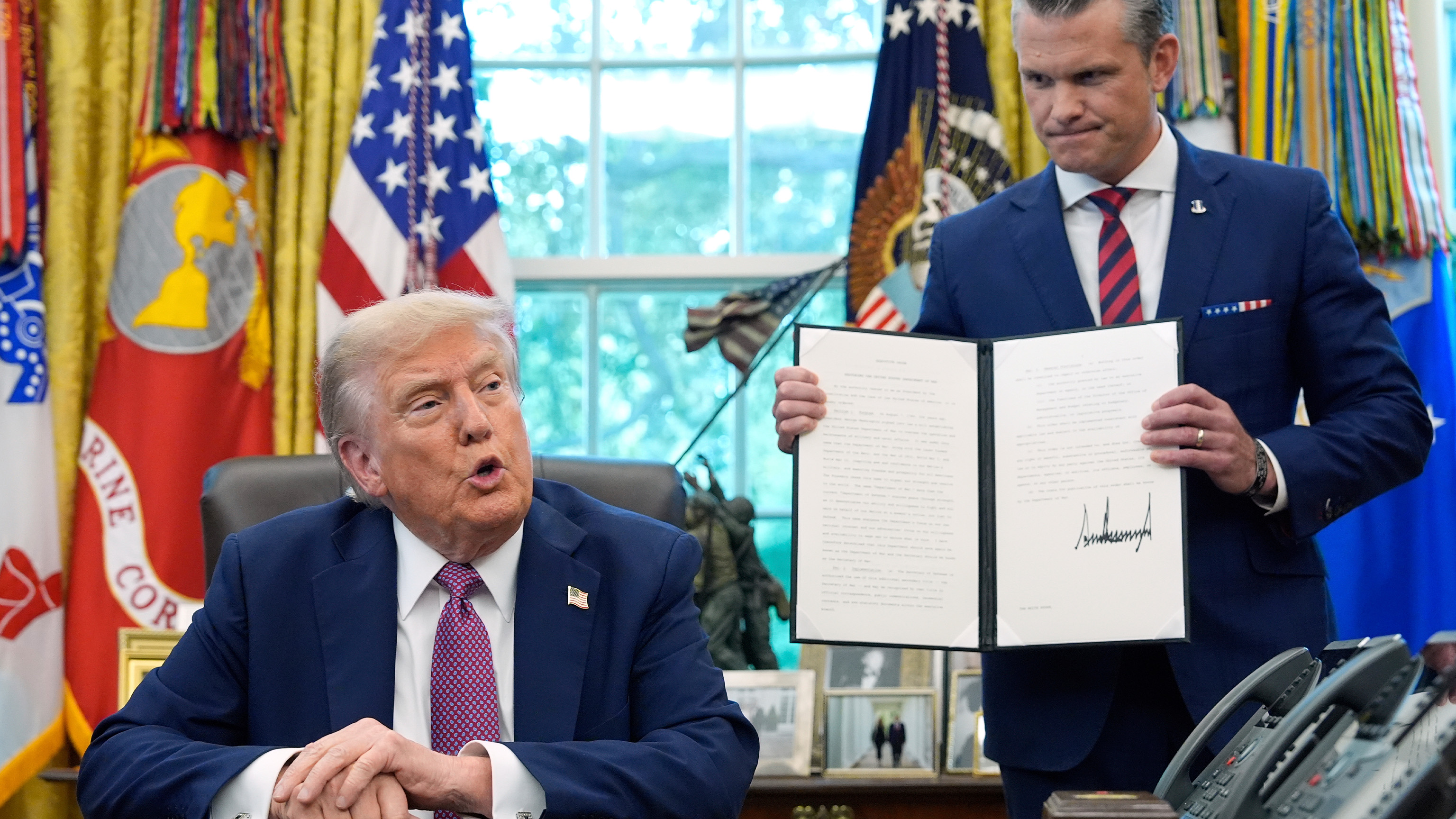Trump signs order renaming Pentagon 'Department of War'
President Donald Trump signed an executive order on Friday renaming the Department of Defense the Department of War.
The formal renaming of the department would require Congress to act, but the order is expected to say the new name can be used in official correspondence and ceremonial contexts and non-statutory documents.
The Secretary of Defense may also use the title of Secretary of War under the order, the White House confirmed.

"This is something we thought long and hard about," Trump said in the Oval Office, where he was flanked by Defense Secretary Pete Hegseth.
Hegseth said the name change was about "restoring the warrior ethos" in the military.
Trump had teased the change for months, stating he didn't believe the name "Department of Defense" was strong enough.
"We won the first World War, we won the Second World War, we won everything before that and in between. And then we decided to go woke and we changed the name to Department of Defense. So we're going Department of War," Trump said on Friday.
Last month, Trump told reporters he didn't think he needed congressional approval to change the name.
"We're just going to do it. I'm sure Congress will go along if we need that. I don't think we even need that," Trump said last month.
In 1789, the Department of War was created by Congress to oversee the Army, Navy and Marine Corps. The Navy was later separated into its own department.
After World War II, President Harry Truman put all armed forces under one organization that was renamed the Department of Defense.
"It was clear from World War II that warfare was going to be joint and combined, so it was just necessary It was clear to some as early as the 1930s that you would have to integrate military affairs and war and preparations for war, the Treasury Department" with "intelligence, allied policy issues and domestic industrial policy," said Richard Kohn, a professor of military history at the University of North Carolina at Chapel Hill.
In other words, fighting a war became about more than just war, Kohn said, and the Truman administration wanted a broader agency to encompass all of that.
Additionally, "defense was what was talked about in the 1940s, not just war-making," Kohn said.
ABC News' Benjamin Siegel contributed to this report.







